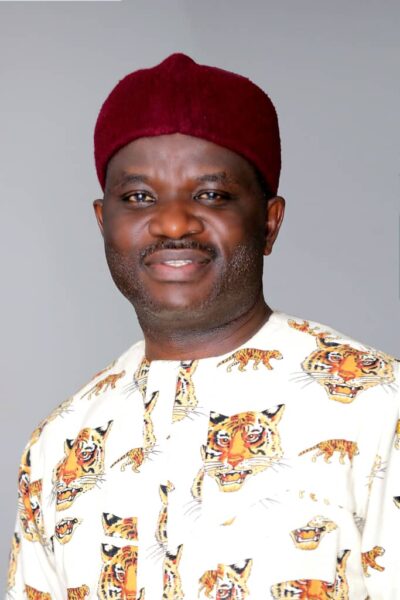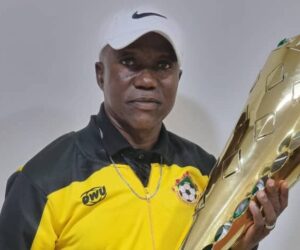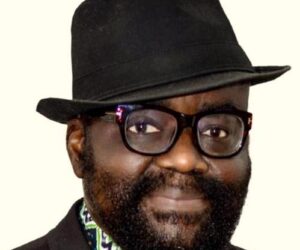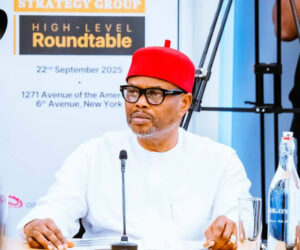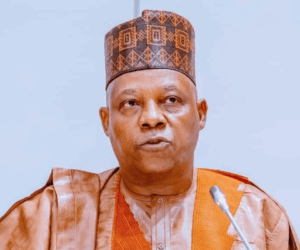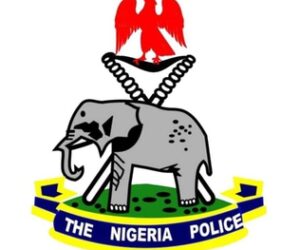Nigeria’s coastal highway is a massive road infrastructure project of about 750 kilometres connecting the southern Nigeria corridor spanning Lagos to Cross River states. It is designed to boost economic development, improve transportation, stimulate investment and create employment opportunities along the coast.
By design, it is a highway of six lanes constructed on durable rigid pavement which will feature underground drainage system, ocean wave bulwark and a safe pedestrian walkway with ocean view.
Unlike the conventional rigid pavement done with 5mm BRC wire mesh, the design provides for a steel mat of 16mm iron rods with 10mm iron rods tie ropes intricately woven to cohere with a grade 40 concrete insitu, giving in practical terms, the assurance of a century-time-frame warranty.
The highway links the industrial zones like the Lekki Free Trade Zone and Lagos generally, with Ogun, Ondo, Edo, Delta, Bayelsa, Rivers, Akwa Ibom and Cross River states. The highway connects strategic industrial assets like Dangote Refinery, Lekki Deep Sea Port and Lekki Trade Zone.
For speed of execution, the construction is divided into sections and, work is in progress simultaneously in all the sections, with section 1 (Lagos to Lekki Free Trade Zone) significantly underway as at August 2025 ending. The first section is slated for completion by April 2026 according to Engr. David Umahi, the Minister of Works. It is said that a major syndicated loan from lenders led by Deutsche Bank has secured significant financing for the first section, signalling investors’ confidence.
Of late, however, disputes and calls for greater transparency from diaspora investors, sundry property owners and interested public have been questioning the project’s handling of investors’ and public interests.
There are concerns about sensitive ecological issues, coastal forest destruction, habitat disruptions and displacement of communities. A summation of the foregoing issues and concerns constitute the substance of the subject matter of the coastal highway.
Then follows the sensation of the coastal highway project. Here the substance is not evaluated in an objective parameter, but rather from a compulsory fault-finding stance. Thus seeking by all means possible to diminish the many benefits of the project by excessively magnifying perceived or imaginary obstacles or low points of the project.
It becomes a sensational banality, when the maximum outlay of huge figures of financial involvements are over-hyped with scanty details of the pre-requisite huge material and labour or overhead costs of the execution of the project.
It was this aspect of sensation that played out in the interview of the minister of works on Tuesday, October 7, 2025; which was anchored by Oseni Rufai of Arise Television. In the said programme, Oseni Rufai recalled that Umahi had earlier reported him to the president. He went on to question the minister on the “cost of the road per kilometre.” At a stage, the anchor wanted the minister to “keep quiet” and apparently referred to the entire gamut of the personnel within the organogram of the federal government as “you guys”.
I dare say that the arrogance of expression and the context of Rufai’s questioning approach could not have gone down well, even with an accused person undergoing a lawyer’s cross examination in a court trial.
Then the sarcastic reference to the minister literally as ” Prof. Umahi” even when it was clear that by asserting himself as a professor in terms of practical field experience in civil engineering, the minister simply meant that he was a competent and well versed authority in his field.
Consequently, going by the mean-spirited attempt to demean the integrity of Umahi’s knowledge of engineering, Osen Rufai was caught in a self-inflicted web of the irony of his own illicit authority as one trained in the subject matter of anatomy and physiology, but passing himself off as a journalist.
In a bid to promote sensationalism, Rufai desperately wanted to elicit an anti-climax response of the minister dishing out fat figures, only to be left at the mercy of the programme anchor for the opportunity to justify such figures.
But, the minister in his wisdom preferred the foundation up to the total costs approach. At any event, the question of “cost per kilometre of road” was coined in proud ignorance. The Arise anchor may, at best, have intended to ask for the “average cost per kilometre of road.” There is a world of difference in those terms. “Cost per kilometre of road,” would require the minister to look at the bill of quantities and engineering measurements for the road and supply statistics of 750 figures, because the cost of each kilometre of road cannot be the same, because each is done on the basis of it’s specific terrain and other variables.
In construction economics, “the cost per kilometre refers to the specific, calculated expense for a particular project segment, while the average cost per kilometre is a generalised benchmark derived by averaging the costs of many diverse project segments.”
The key difference is that “cost per kilometre” is a project specific value whereas average cost per kilometre is an aggregate benchmark value that is influenced by factors like project size and design.
Umahi understood the mix-up by the anchor, a little diplomacy or basic courtesy of language and carriage would have allowed the Minister the right frame of mind to explain the difference to Rufai so as to enable him frame the right question. The pervading mood was that of a somewhat condescending Rufai, berating an inferior for reporting him to the president, his equal.
With well-heeled on air television anchors, like the late Larry King of the CNN Larry King Live fame and Stephen Sackur of BBC Hard Talk, impassioned viewers would not be mistaken to conclude that Oseni allowed bile and malice colour his professional responsibility.
What is more, the carriage, comportment and conduct of Oseni Rufai exposes him not only as a non-professional mass media practitioner, but also a voice of entrenched interest with scant respect for etiquette and ethics.
No doubt, in his fixated mind-set of mistaking sensation for expertise, Rufai compounded an issue of particular instantiation with universal generalisation, the substance of the discourse was forgotten and the temperament of the participants supplanted the serious issues. Alas, Oseni Rufai ended up as the messenger who, out of haste to perform his task, forgot the message.

